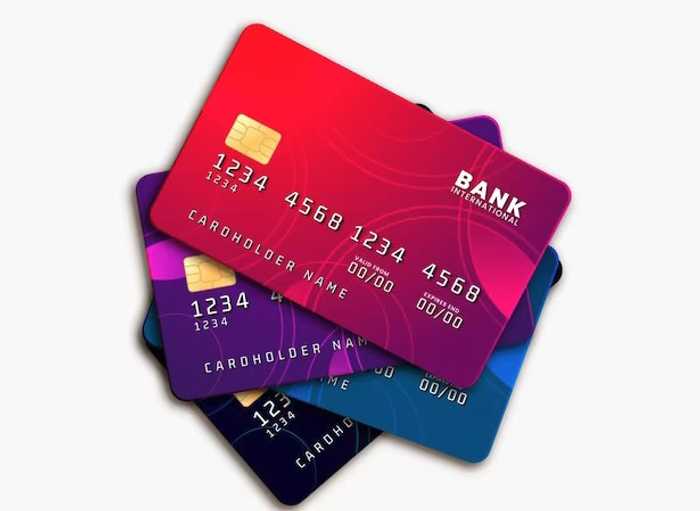Published 13:48 IST, April 14th 2024
Planning to apply for your first credit card? Here's all you need to know
A cash advance with a credit card is convenient but comes at a steep cost, making it one of the most expensive ways to access cash.
Advertisement
Credit card rules: Are you taking the leap and getting your first credit card? For many, obtaining that shiny piece of plastic symbolises a step towards financial independence. However, as experts caution, with great purchasing power comes great responsibility. While a credit card can indeed be a gateway to financial flexibility, it's crucial to wield it with care to avoid getting trapped in a cycle of debt.
Your spending support
A credit card is a financial tool that allows you to make purchases on credit, up to a predetermined limit set by the issuing bank. When you use a credit card, the issuer pays the merchant on your behalf, and you receive a bill at the end of the billing cycle. It's important to note that you're required to repay the full amount to avoid interest charges.
Advertisement
How do credit cards work?
Credit cards function through a straightforward yet elaborate process. It all begins with a transaction, whether you're making a purchase at a retail store or online. This typically involves swiping the card, inserting it into a chip reader, or entering its details manually. Once the transaction is initiated, the details are swiftly transmitted to the issuing bank for authorisation. Here, various factors such as your credit limit, identity verification, and the validity of the transaction are scrutinised.
Upon approval, the transaction is confirmed, and you receive a receipt indicating the successful completion of the purchase. At the end of the billing cycle, a comprehensive bill is generated, detailing all your transactions during that period. To avoid incurring interest charges, it's imperative to repay the billed amount in full before the due date. This cycle of transactions, authorisation, confirmation, and repayment forms the backbone of how credit cards operate, offering users convenience and financial flexibility when managed responsibly.
Advertisement

Must-knows first-time credit card applicants
Firstly, it's crucial to conduct a thorough comparison before committing to a credit card. Evaluating factors like fees, interest rates, and benefits ensures alignment with individual financial needs.
Advertisement
Understanding responsibility is paramount; recognising the fiscal obligations inherent in credit card ownership underscores the importance of timely repayments to evade exorbitant interest charges and cultivate a strong credit score.
Moreover, limiting card ownership to a single credit card streamlines expense management and mitigates the risk of debt accumulation, particularly for first-time users. Opting for a conservative credit limit helps curtail spending and prevents financial overextension. Punctual payments are non-negotiable; settling the entire balance before the billing cycle concludes is essential to dodge late fees and boost disciplined payment habits.
Advertisement
Consistent usage of the credit card for minor purchases not only maintains its active status but also fortifies one's credit history, laying a solid foundation for future financial endeavours.
Lastly, familiarising oneself with the security features of the credit card, such as CHIP + PIN, fortifies defenses against fraud and unauthorised transactions, ensuring peace of mind in an increasingly digital world.
Advertisement
4 costly credit card mistakes you should avoid
Avoid the minimum payment trap
Opting to pay only the minimum due may seem convenient, but it can wreak havoc on your finances. Interest accumulates on the unpaid balance, compounding your debt even further. Additionally, new transactions attract immediate interest charges, leading to a cycle of increasing debt. It's best to pay your credit card balance in full and on time to avoid these costly repercussions.
Steer clear of cash advances
Cash advances may offer quick access to funds, but they come at a steep cost. Interest begins accruing immediately upon withdrawal, and additional fees often apply. Furthermore, the interest-free period is forfeited, meaning new purchases also accrue interest from the day of transaction. Avoid this costly mistake by seeking alternative means for cash needs and refraining from unnecessary spending.
Not maintaining credit utilisation ratio
Utilising the majority of your credit limit can harm your credit score. Credit experts recommend keeping your credit utilisation ratio below 30 per cent to maintain a healthy score, according to paisabazaar. Failing to do so may result in a lower credit rating and limited credit availability. To avoid this, strive to keep at least 20 per cent of your total credit limit unused and consider requesting a credit limit increase if necessary.
Not making a right choice
Selecting a credit card without considering its terms and conditions can lead to missed opportunities and wasted resources. Choosing a card focused on benefits that don't align with your spending habits or lifestyle can result in missed rewards and unused features. To avoid this mistake, thoroughly research and choose a credit card that complements your needs and preferences.
11:52 IST, March 27th 2024